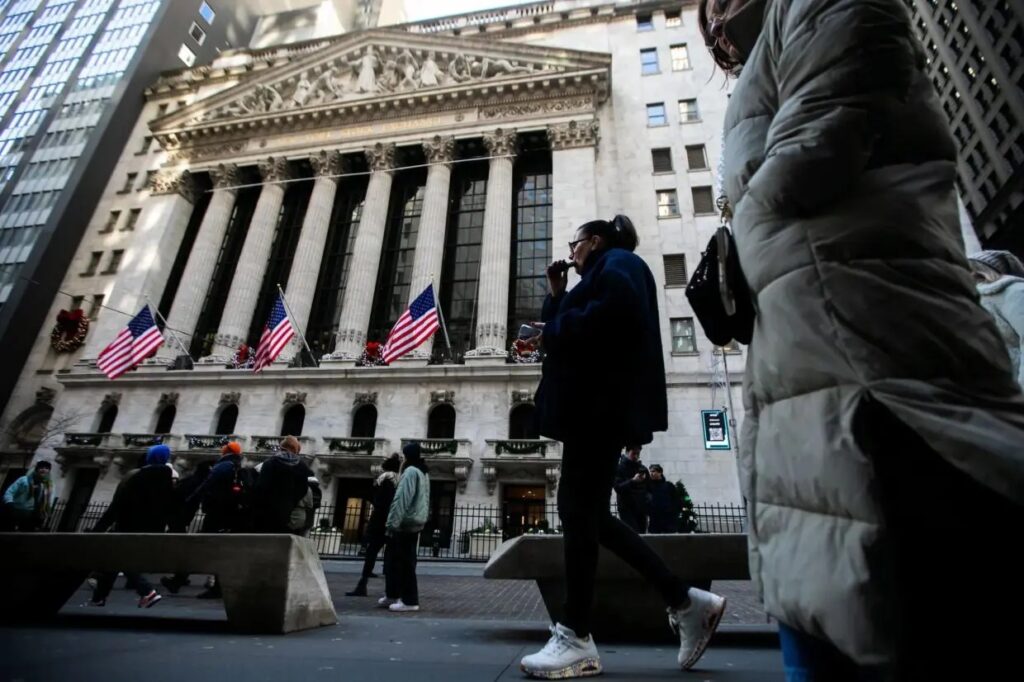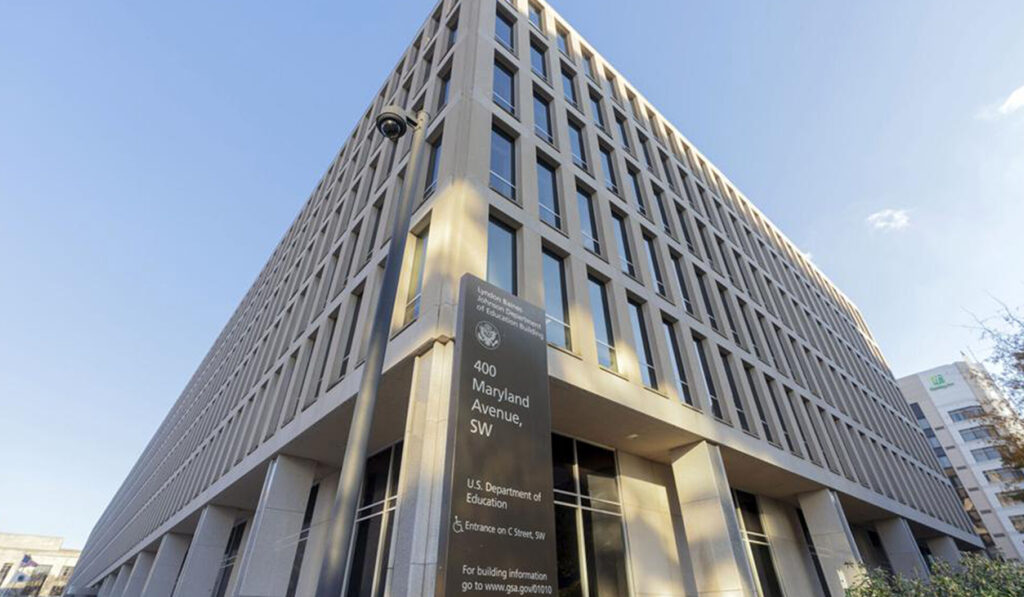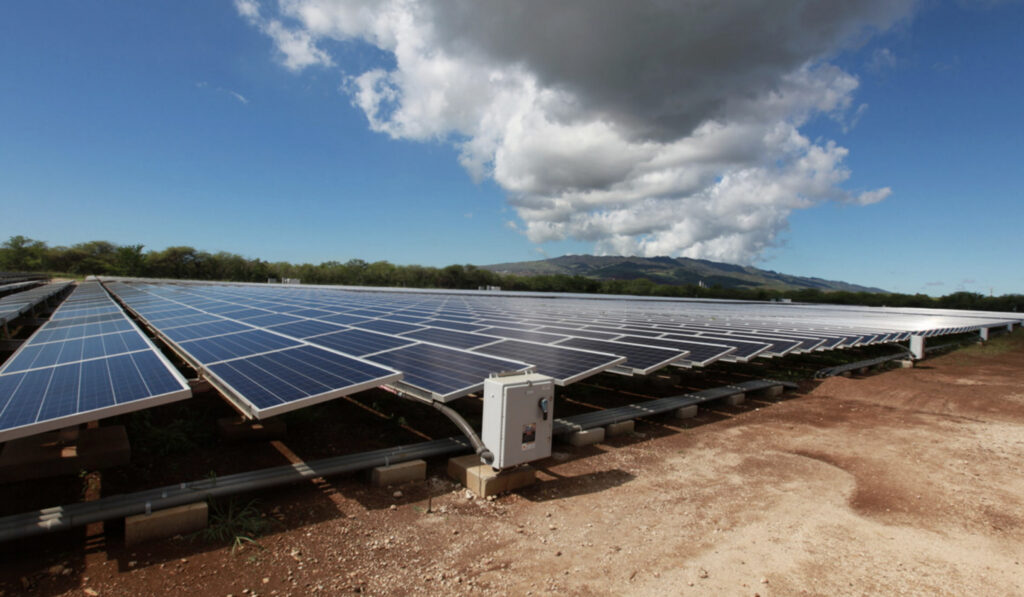
May 12, 2025 — Wall Street is on edge as a combination of persistent inflation, tightening monetary policies, geopolitical tensions, and an overvalued stock market creates a perfect storm for investors. With fears of a 2025 market crash intensifying, analysts are warning that the U.S. economy may be on the brink of a significant downturn.
As of mid-May 2025, major stock indices are showing a remarkable level of volatility. The S&P 500, which tracks 500 of the largest publicly traded companies in the U.S., has seen a modest rebound from earlier lows, gaining about 18% in the past month. However, experts argue that this bounce may be short-lived, with further declines expected as the full impact of the Federal Reserve’s rate hikes and ongoing global economic challenges take hold.
The Dow Jones Industrial Average, which tracks 30 major companies, has also shown some positive movement, but it remains far from its previous highs. Meanwhile, the Nasdaq Composite, heavily weighted toward technology stocks, has been hit hard by investor concerns about overvalued tech companies, with many analysts predicting a significant correction in the tech sector.
Economist Harry Dent has been one of the most vocal voices predicting a major market crash in 2025. Dent argues that the market is currently in the midst of a massive bubble, inflated by years of cheap money and government stimulus following the 2008 financial crisis. According to Dent, the market could crash by as much as 86% if the bubble bursts, with a particular focus on tech stocks that have led the charge in recent years.
“In the last 10 years, we’ve seen asset prices inflated to levels that simply aren’t sustainable. The Fed’s ultra-low interest rates and endless monetary stimulus have created a ticking time bomb, and when it explodes, it will be catastrophic for many investors,” Dent stated in a recent interview with Business Insider.
Goldman Sachs analysts also share concerns about the potential for a market crash, though they are slightly more optimistic about the near-term outlook. The firm forecasts that U.S. stocks could drop by nearly 20% over the next six to twelve months, citing trade tensions, rising interest rates, and sluggish economic growth as key factors contributing to the market’s struggles. Goldman Sachs warned that, despite a recent rally, stocks are still overvalued based on forward earnings estimates.
A Critical Factor in the Market’s Fate
One of the key drivers of the current market instability is the Federal Reserve’s aggressive interest rate hikes, aimed at curbing inflation that has reached 40-year highs. After a series of hikes, the Fed’s benchmark federal funds rate now stands at 6%, up from 0.25% in early 2022. The rapid increase in borrowing costs has led to higher yields on U.S. Treasury bonds, making stocks less attractive by comparison.
For many analysts, the Fed’s decision to tighten monetary policy is seen as a double-edged sword. While the central bank’s actions are necessary to combat inflation, they are also creating significant headwinds for both consumers and businesses. The cost of borrowing for mortgages, car loans, and corporate debt has skyrocketed, leading to reduced consumer spending and corporate investment. As a result, companies across various sectors are warning of weaker earnings in the coming quarters.
While domestic factors like monetary policy are contributing to market instability, global economic risks are also playing a significant role. The ongoing crisis in the Chinese property sector, which has seen major developers like Evergrande and Country Garden default on billions of dollars in debt, is causing ripple effects across global markets. Many investors are concerned that the Chinese economy, which has been a major driver of global growth, could be entering a prolonged slowdown, dragging down global demand for U.S. goods and services.
China’s slowdown, combined with continued trade tensions between the U.S. and its major trading partners, including Canada, Mexico, and Europe, has many experts worried about a potential global recession. The U.S. is particularly vulnerable to these external pressures, as it relies heavily on exports and foreign investment to fuel its economic growth.
In addition to the ongoing trade issues with China, the U.S. has seen a rise in trade tensions with other nations, particularly as President Biden’s administration has pursued a more protectionist trade policy. Recent tariffs on European automobiles and Canadian steel have raised concerns about the possibility of a trade war that could further hamper global economic growth.
As of May 2025, the U.S. is embroiled in a contentious dispute with Mexico over labor and environmental standards in trade agreements, with both nations accusing each other of unfair trade practices. While the Biden administration has emphasized the need for fair trade and protecting American workers, the trade frictions have led to increased uncertainty in global markets.
Inflation remains one of the most pressing issues for the U.S. economy, with prices rising at their fastest pace in over four decades. The U.S. inflation rate, which peaked at 9.1% in mid-2022, has only slightly cooled to around 6.5% by May 2025. However, this level of inflation continues to put significant pressure on household budgets, particularly for lower-income families who spend a larger portion of their income on necessities like food, energy, and housing.
In response to rising prices, the Federal Reserve has been tightening monetary policy, but this has only led to higher borrowing costs and a slowdown in consumer spending. Retail sales have stagnated, and consumer confidence remains weak. Economists fear that the combination of high inflation and rising interest rates could push the U.S. economy into a recession by the second half of 2025, which would likely trigger a broader market downturn.
Are We in the Midst of Another Dotcom Crash?
Many experts are drawing parallels between the current state of the tech sector and the infamous dotcom bubble of the late 1990s. Tech stocks, particularly those in the artificial intelligence (AI) and electric vehicle (EV) industries, have surged to unsustainable levels in recent years, driven by investor optimism and speculation.
Despite impressive growth, many of these companies are still operating at a loss, and analysts warn that the valuation of these firms may be far too high. The rise of AI and automation technologies has led to intense competition, and some believe that the market is heading toward a massive correction in the tech sector.
While some analysts are warning of an imminent market crash, others are more cautious, arguing that the U.S. economy may be able to navigate these challenges without falling into a full-blown recession. According to data from the Wall Street Journal, many companies have been taking steps to manage risk and reduce debt, and consumer spending remains resilient despite inflationary pressures.
However, with interest rates still elevated, global trade tensions unresolved, and inflation remaining stubbornly high, the outlook for U.S. markets remains highly uncertain. As the 2025 economic landscape continues to evolve, all eyes will be on the Federal Reserve and policymakers as they attempt to balance the competing pressures of inflation, growth, and market stability.
A Risky Road Ahead for Investors
The U.S. stock market is at a crossroads, with a combination of domestic and international challenges threatening to derail the current economic recovery. Whether the market experiences a sharp correction, a prolonged stagnation, or a full-blown crash remains to be seen. For now, investors are advised to stay cautious and be prepared for heightened volatility in the coming months.

Bella Richardson is a dedicated journalist and news analyst known for her clear, thoughtful reporting and her ability to make complex stories accessible to a broad audience. With a Master of Science in Mass Communication, she brings both academic insight and real-world experience to her coverage of breaking news and trending topics throughout the United States.






